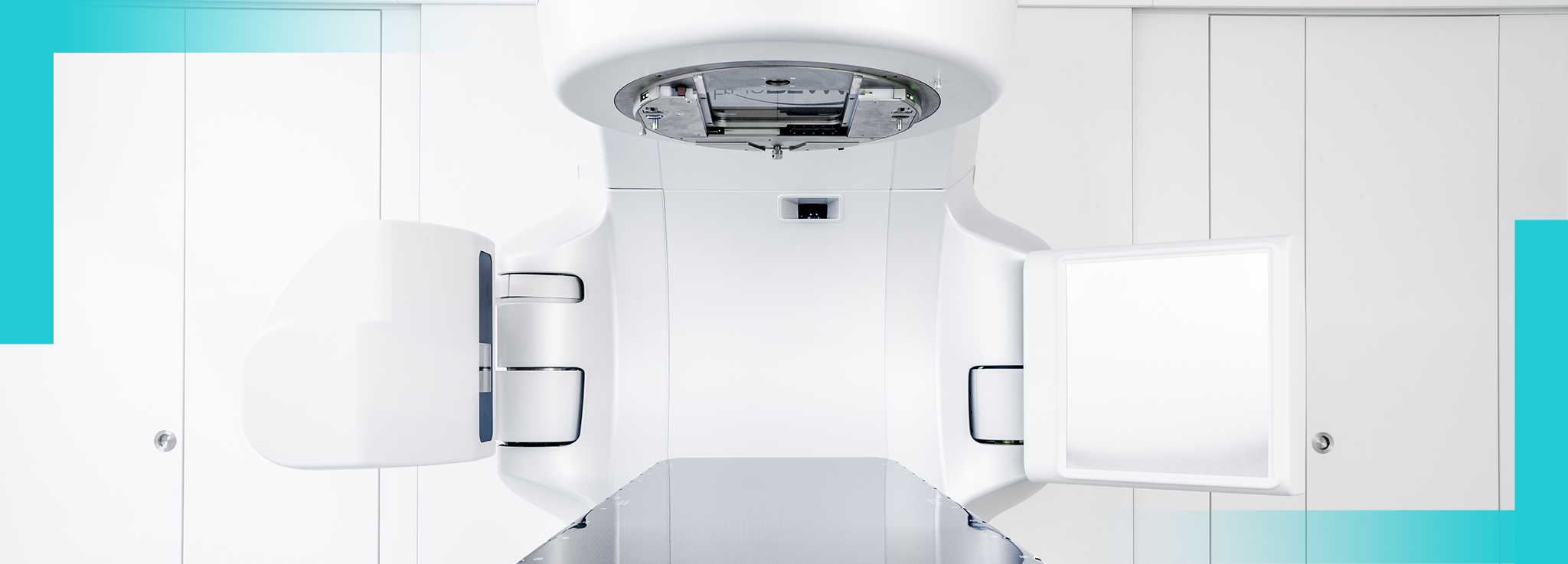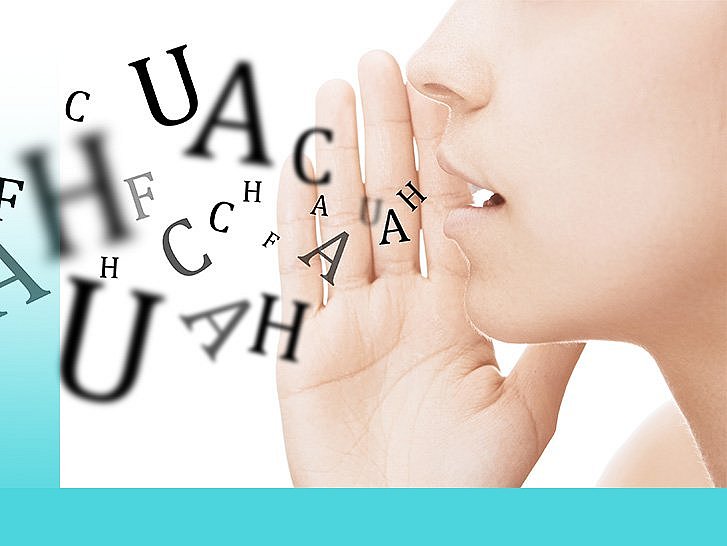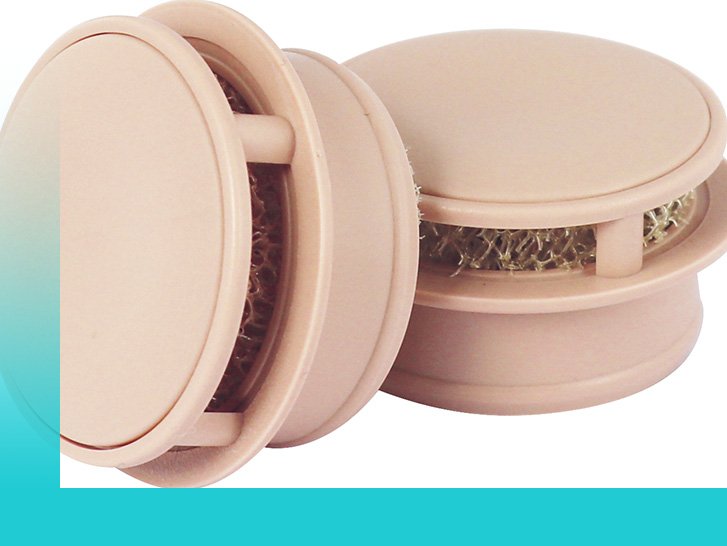When radiation saves lives
Radiotherapy often forms an elementary part of tumour treatment. However, as important as this measure is, it is usually preceded by various fears and concerns on the part of those affected. Many patients may have already heard of negative experiences and unpleasant side effects of radiotherapy in their personal surroundings.
Dr. med. Dorothea Riesenbeck, radiotherapist and chief physician at ONCOCUBUS Recklinghausen, is therefore particularly keen to explain to patients the context, goals and consequences of radiotherapy and to provide them with the best possible support where necessary. The ultimate goal of her commitment is for patients to get through the period of necessary treatment noticeably better. We have summarised the definitely helpful information from a very detailed conversation with Dr Riesenbeck for patients and relatives in the following:
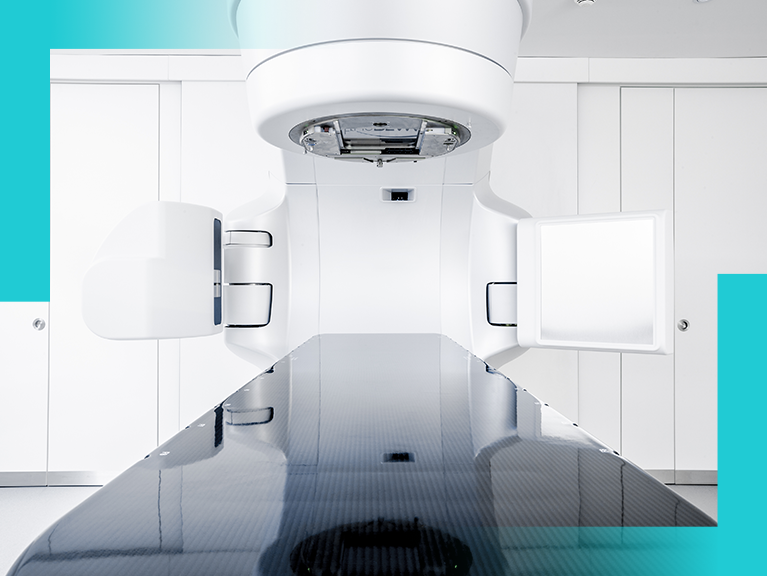
How does radiotherapy work?
The effect of radiation is basically to kill the tumour cells while at the same time preserving the surrounding healthy cells that are more capable of repair. The high-energy ionising rays are used in different ways to treat diseases caused by cancer. For example, if a tumour is inoperable, radiation chemotherapy is the primary form of treatment. However, in other cases, the tumour has already been removed, yet there is still a risk that tumour cells continue to be present. In this case, "adjuvant" (supportive) radiotherapy alone or in combination with mild chemotherapy is planned. Today, technical progress enables very precise irradiation of the tumorous tissue while sparing adjacent healthy tissue structures.
What can a patient with a head and neck tumour expect during radiotherapy?
Generally speaking, a total of 25-30 irradiations are planned spread over each day of the week for 5-6 weeks. For therapy, the patient is properly positioned on the treatment table and an individually fitted special mask fixates the head in the laser-controlled correct position for treatment. The irradiation unit, the so-called "linear accelerator", is equipped with two different heads and rotates around the patient in an approx. 360° radius during irradiation.
In addition to delivering the radiation dose via one head, important control images can also be taken via the other head during this process. Nevertheless, the individual appointment usually lasts a maximum of ten minutes.
Irradiation and the time involved place a great physical burden on those affected. Typical side effects such as feeling poorly, nausea, skin redness, mucosal damage or pain increase noticeably towards the end of the treatment. Particularly unpleasant and serious is the loss of taste.
In general, the following applies in this situation: be sure to address any symptoms that occur at your daily radiotherapy appointment! These days, good and suitable medicines are available that can reduce the symptoms and help patients to get through this strenuous therapy better.
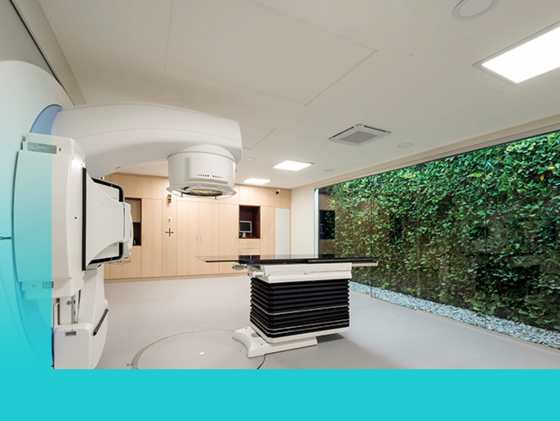
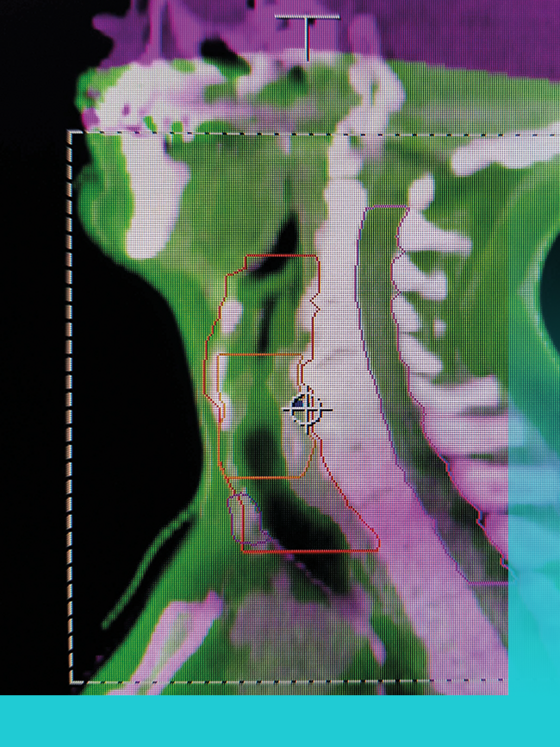
4 well-intentioned tips for radiotherapy

First and foremost: eat at regular intervals! The prime objective is to provide your body with enough energy and nutrients to make you feel comfortable. There is no special cancer diet. The general rule is: eat what your body needs and can tolerate at the moment.

Drink sufficient fluids! The volume of fluids should be evenly distributed throughout the day. You can find out how much and what you should drink during your treatment from your doctors and your nursing contacts or a nutrition counsellor.
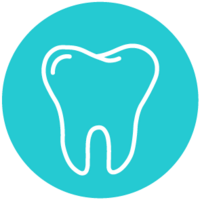
Brushing teeth - no break in brushing. Make sure you maintain adequate oral hygiene! Sage teas are useful as a mouthwash. Avoid mouthwashes with alcohol. Cold drinks and ice have a soothing effect on painful mucosal damage.

Stay active! Physical activity improves well-being and can promote healing. A combination of light weight training and endurance training is definitely beneficial for your treatment. Special sports groups for tumour patients are often available.

In recent years, radiotherapy has developed into a highly precise form of treatment. It either aims to cure patients permanently or, if this is not possible in the case of advanced disease, to alleviate the symptoms. This brochure is mainly aimed at radiotherapy patients and their relatives. But it also serves as a source of information for interested laypersons. It describes the basic principles and processes of radiotherapy and is intended to make them easier to understand.
One's own behaviour can have positive effects!
The importance of food and drink in the context of cancer therapy may at first appear absolutely trivial to the layperson. However, without an individually sufficient fluid and calorie intake, radiation therapy cannot be performed without interruption and is therefore less effective. Accordingly, weight loss during therapy is not desired. Regular weight checks twice a week are therefore strongly advisable. Report any weight changes to the radiotherapist promptly! Good oral hygiene with sage tea rinses several times a day is also recommended to avoid painful mucosal damage. Cold drinks and ice also have a soothing effect. Alcoholic or strong mouthwashes, on the other hand, are unsuitable.
Patients with pre-existing conditions should be particularly attentive in this regard during irradiation. In the case of chronic diseases such as high blood pressure or diabetes, regular checks during irradiation are useful in order to detect drops in blood pressure or fluctuations in blood glucose levels at an early stage. Also consider gentle body care. Care products with few additives are gentle on the skin. Soft towels and clothing that avoid friction have a significant positive effect on skin texture. Dry shaving is preferable to wet shaving to avoid skin damage and infection.
There is impressive evidence that everything that speeds up the heart rate and breathing is beneficial for both body and soul. For example, go for walks, not necessarily far - but regularly. Challenge yourself. Enjoy nature. At the ONCOCUBUS Recklinghausen, one wall in the irradiation room was deliberately planted with green vegetation, which has a noticeably calming effect in contrast to the high-tech accelerator. In addition, the plants keep the room's humidity constant and thus prevent damage to the cost-intensive treatment unit.
When asked about her individual tips for a healthy level of exercise during radiotherapy, Dr. med. D. Riesenbeck answered with a four-point list:
- One should do what one enjoys.
- Everything one does is better than doing nothing.
- Exercise does you good! Find a special occasion every day for a "dose of exercise".
- Do not forget eating and drinking.
However, good intentions and motivation should not lead to overexertion, so stay mindful. Last but not least, some strong advice from the specialist: in principle, the radiotherapist is your first contact person in case of changes and side effects during the course of radiotherapy. And in the long term, too, the radiotherapist should be contacted in case of any symptoms that could possibly be associated with radiotherapy. Furthermore, an annual summary of information about the patients' quality of life is required by law.
